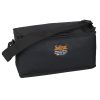Solinst Model 102M P10 Probe Mini Water Level Meter
Features
- Accurate, precise laser markings
- 10mm x 70mm probe with 10 stainless steel weights
- Heavier probe assembly ideal for greater depths
- Free ground shipping
- Expedited repair and warranty service
- Lifetime technical support
- More
Overview
The Solinst Model 102M P10 Probe Mini Water Level Meter is designed to measure groundwater levels in small diameter tubes and piezometers. A choice of two small diameter probe designs are attached to a narrow coaxial cable. The cable has a heavy-duty polyethylene jacket and stainless steel coaxial conductors for durability and strength. Permanent markings are precisely laser etched on the cable every 1/100 ft. or each millimeter.
Mechanics
A standard 9 volt battery, housed in an easy-access battery drawer, powers the Water Level Meter. When the probe enters water, a light and clearly audible buzzer are activated. The water level is then determined by taking a reading directly from the cable at the top of the well casing or borehole. A sensitivity control allows the buzzer to be turned off while in cascading water and ensures a clear signal in both high and low conductivity conditions.
In The News
Floating Global New Ideas: Buoy-Enabled Research at Florida Agricultural and Mechanical University’s School of the Environment
Florida Agricultural and Mechanical University (FAMU), based in Tallahassee, Florida, is the highest-rated public Historically Black College or University in the United States. FAMU’s School of the Environment (FAMU-SOE) offers BS and BA degrees in Environmental Studies, and BS, MS, and Ph.D. degrees in Environmental Science, with specialisms available in areas including Environmental Policy and Risk Management, Aquatic and Terrestrial Ecology, and Biomolecular Sciences. In 2021, FAMU-SOE deployed a NexSens CB-450 buoy in Apalachee Bay, a key oyster farming area around 30 miles south of Tallahassee. The buoy has quickly been incorporated into the curriculum, providing environmental insights for student research, the community, and beyond. Dr.
Read MoreMonitoring Habitat Suitability and Water Quality in Northwest Arkansas Springs
Northwest Arkansas has seen an economic, industrial, and population boom in recent years as a result of expanding businesses, which have created thousands of jobs in the region and the mass migration of employees and construction companies. However, with this growth has come rapid urbanization and the degradation of the natural landscape, specifically the freshwater springs that can be found throughout the region. These springs are critical habitat centers for native wildlife, home to threatened and endangered fish, and those that have yet to be listed. Zach Moran, Assistant Professor of Fisheries Science at Arkansas Technical University, is working to help monitor these habitats and provide key data that will hopefully inform future development in the region.
Read MoreThree Decades of Research at Acton Lake
A multi-disciplinary team at Miami University, Ohio, has been studying the environmental change at Acton Lake for over three decades. Using three different NexSens buoys over this time, the team has an incredible archive of data that is helping build a picture of Acton’s past, present, and future. Until recently, a NexSens CB-50 buoy was used alongside other environmental monitoring at Acton Lake. In May 2025, the Miami team deployed a new XB-200 buoy , future-proofing their ongoing monitoring using real-time buoy systems. Acton Lake, a small hypereutrophic reservoir in southwest Ohio, covers 2.4km² and has a maximum depth of about 8m. The dam was built in 1956, and the lake has a large agricultural watershed.
Read More









